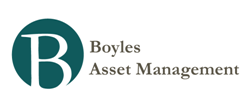Money and Finance
- Jeffrey Bezos, Washington Post’s Next Owner, Aims For A New ‘golden Era’ At The Newspaper
Jeffrey P. Bezos, the next owner of The Washington Post, says he doesn’t have all the answers for what’s ailing the newspaper industry or for the financially challenged news organization he is preparing to buy. But he says he’s eager to start asking...
- How Amazon Trained Its Investors To Behave
In March 2000, Barron's reported that 51 Internet companies were burning cash so fast that they'd be broke by the end of the end of the year. The article (it's behind a seemingly unbreachable paywall) has acquired the reputation of having...
- Inside Amazon's Idea Machine: How Bezos Decodes The Customer
Found via My Investing Notebook. A few months ago Amazon reached what its founder and CEO Jeff Bezos demurely tells me was “an interesting milestone.” The retailing giant, so ubiquitously associated with books, then music and video, now has tens of...
- Taking The Long View
Jeff Bezos, the founder and chief executive of Amazon, owes much of his success to his ability to look beyond the short-term view of things INSIDE a remote mountain in Texas, a gargantuan clock is being pieced together, capable of telling the time for...
- Put Buyers First? What A Concept
When I spoke to analysts and investors, they had all kinds of reasons for Amazon’s performance last year. “They finally reached a point where their R&D spending was not expanding as fast as their revenues,” said Citigroup’s Mark S. Mahaney....
Money and Finance
The Amazon Effect
Found via @farnamstreet.
From the start, Jeff Bezos wanted to “get big fast.” He was never a “small is beautiful” kind of guy. The Brobdingnagian numbers tell much of the story. In 1994, four years after the first Internet browser was created, Bezos stumbled upon a startling statistic: the Internet had been growing at the rate of 2,300 percent annually. In 1995, the year Bezos, then 31, started Amazon, just 16 million people used the Internet. A year later, the number was 36 million, a figure that would multiply at a furious rate. Today, more than 1.7 billion people, or almost one out of every four humans on the planet, are online. Bezos understood two things. One was the way the Internet made it possible to banish geography, enabling anyone with an Internet connection and a computer to browse a seemingly limitless universe of goods with a precision never previously known and then buy them directly from the comfort of their homes. The second was how the Internet allowed merchants to gather vast amounts of personal information on individual customers.
The Internet permitted a kind of bespoke selling. James Marcus, who was hired by Bezos in 1996 and would work at Amazon for five years, later published a revealing memoir of his time as Employee #55. He recalls Bezos insisting that the Internet, with “its bottomless capacity for data collection,” would “allow you to sort through entire populations with a fine-tooth comb. Affinity would call out to affinity: your likes and dislikes—from Beethoven to barbecue sauce, shampoo to shoe polish to Laverne & Shirley—were as distinctive as your DNA, and would make it a snap to match you up with your 9,999 cousins.” This prospect, Marcus felt, “was either a utopian daydream or a targeted-marketing nightmare.”
Whichever one it was, Bezos didn’t much care. “You know, things just don’t grow that fast,” he observed. “It’s highly unusual, and that started me thinking, ‘What kind of business plan might make sense in the context of that growth?’” Bezos decided selling books would be the best way to get big fast on the Internet. This was not immediately obvious: bookselling in the United States had always been less of a business than a calling. Profit margins were notoriously thin, and most independent stores depended on low rents. Walk-in traffic was often sporadic, the public’s taste fickle; reliance on a steady stream of bestsellers to keep the landlord at bay was not exactly a sure-fire strategy for remaining solvent.
- Jeffrey Bezos, Washington Post’s Next Owner, Aims For A New ‘golden Era’ At The Newspaper
Jeffrey P. Bezos, the next owner of The Washington Post, says he doesn’t have all the answers for what’s ailing the newspaper industry or for the financially challenged news organization he is preparing to buy. But he says he’s eager to start asking...
- How Amazon Trained Its Investors To Behave
In March 2000, Barron's reported that 51 Internet companies were burning cash so fast that they'd be broke by the end of the end of the year. The article (it's behind a seemingly unbreachable paywall) has acquired the reputation of having...
- Inside Amazon's Idea Machine: How Bezos Decodes The Customer
Found via My Investing Notebook. A few months ago Amazon reached what its founder and CEO Jeff Bezos demurely tells me was “an interesting milestone.” The retailing giant, so ubiquitously associated with books, then music and video, now has tens of...
- Taking The Long View
Jeff Bezos, the founder and chief executive of Amazon, owes much of his success to his ability to look beyond the short-term view of things INSIDE a remote mountain in Texas, a gargantuan clock is being pieced together, capable of telling the time for...
- Put Buyers First? What A Concept
When I spoke to analysts and investors, they had all kinds of reasons for Amazon’s performance last year. “They finally reached a point where their R&D spending was not expanding as fast as their revenues,” said Citigroup’s Mark S. Mahaney....

